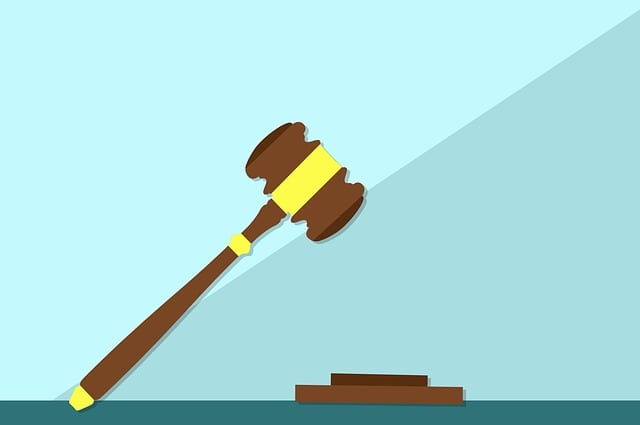Cybercrime – Laws and Penalties
Cybercrime – a term we’ve all heard, thanks to all the hacking geniuses who find new ways to access our sensitive details. And it’s not like these things happen rarely. No, they are getting more frequent. While earlier, hacking was considered an occasional happening, there are major hacking incident almost every week. With cryptocurrencies, online banking, e-commerce and all the other sensitive things, it is very easy to see why the criminal-minded are ready to jump at any opportunity to exploit your details to earn some easy bucks. While the crooks are coming up with new methods to steal important data, lawmakers aren’t behind. Many countries have now implemented strict cyber laws to keep such incidents in check. Most internet users come online for work-related purposes, education, or just some great entertainment. However, there are also some malicious entities that will jump at the chance of earning easy money by stealing your passwords, credit card information, or any other sensitive data.

Cybercrime – Laws and Penalties
Cybercrime – Laws and Penalties
And when these crooks do get caught, how are they served by the law? It’s important to know about cyber laws and how they protect innocent folks. Keep in mind that these laws change from region to region. What applies in one country might be completely different in another. In case you have been a victim of cybercrime, it is always best to contact a lawyer who is familiar with the laws governing the web.
Intellectual Property Theft
Intellectual property theft occurs when someone uses your intellectual property for any reason without your permission. This does include various items such as software, movies, songs, images among others. Torrenting and streaming are two commonly used methods when committing copyright theft.
Sentences for copyright theft might result in fines that can go into millions of dollars as well as imprisonment in some cases.
Stalking and Harassment
This is the most common form of cybercrime though not the least damaging. Instead of playing with people’s finances, which requires a certain level of technical know-how, staking and harassment can be done by anyone. There have often been reports of people committing suicide from the cyberbullying they faced. Parents are often very concerned about the kind of unfiltered crowd their kids might come across online. And for the naïve and gullible, social media can indeed be a death trap.
These days, it’s not really possible to stay away from social media, especially for teens. What you can do is learn more about privacy and make sure you don’t let your posts be read by everyone. Also, make sure you don’t add strangers to your personal network.
Sentences for cyberbullying and harassment in the US can lie between 18 months to 10 years of imprisonment. The fine can be from $10,000 to $150,000.
Identity Theft
This one is exactly what it sounds like. In the days before the internet, ID theft was harder to pull off. But now with everything going online, it is much easier to use someone else’s identity to commit all kinds of fraud. Identity theft is a very vast field and can range from anything from phishing scams to credit card frauds.
While it’s easy to steal identity, it’s also easy to stay safe and protect your details.
If you know how a typical phishing scam works, you can avoid clicking links given in suspicious emails, and report them as spam. On the other hand, if you think you might be subjected to a credit card fraud, you can contact your bank and have the card frozen to minimize the financial damage.
This crime can carry a term of 15 years in prison in the US. Criminals can also be fined and have their personal property forfeited.
To minimize the risk of identity theft, you must equip your computer with the basic security tools. Make sure you install an antivirus and a VPN for cybersecurity. However, you must also exercise vigilance when opening links and providing sensitive information.
Computer Fraud
Computer fraud is covered by CFAA (Computer Fraud and Abuse Act) of USA. This fraud covers the illegal access to a computer without authorization. However, it covers only certain “protected computers.” All the computers that are used for financial transactions by the government of USA are covered under this act. So if a hacker tries to access one of these computers, they will be charged under CFAA.
Illegal Trade
This is an aspect of cybercrime that does not directly involve most of us. Nevertheless, knowing about it is important to protect yourself from it even more so. Most illegal trades including drugs and arms etc. are done on the dark web. This is the most sinister side of the web which you should preferably steer clear of.
While accessing the deep web isn’t illegal, watching certain content such as child porn can lead to a long jail term and hefty fines. You can also be listed as a sex offender.
Cybercrime – Conclusion
As an internet user, you can sleep peacefully, knowing that the government has all the laws to protect you. However, keep in mind that hackers are not always caught. And since a hacker that gains access to your accounts might be located in some other countries, it creates several problems.
Vigilance is a good way to protect yourself. If in any kind of doubt, use a VPN to mask your online activity and stay protected. Bear in mind that there is no substitute for vigilance. Stay alert and you can readily enjoy the wonders of the web without a worry. Check out these cyber security trends to stay informed.
And remember, don’t do the crime if you can’t do the time.





